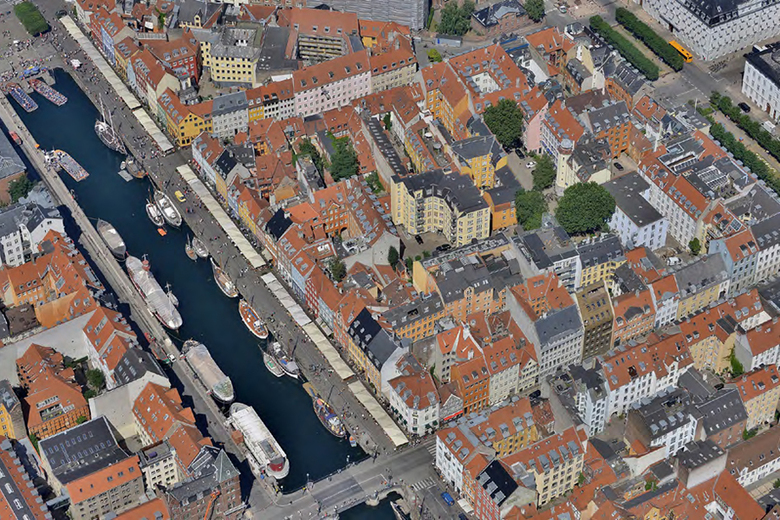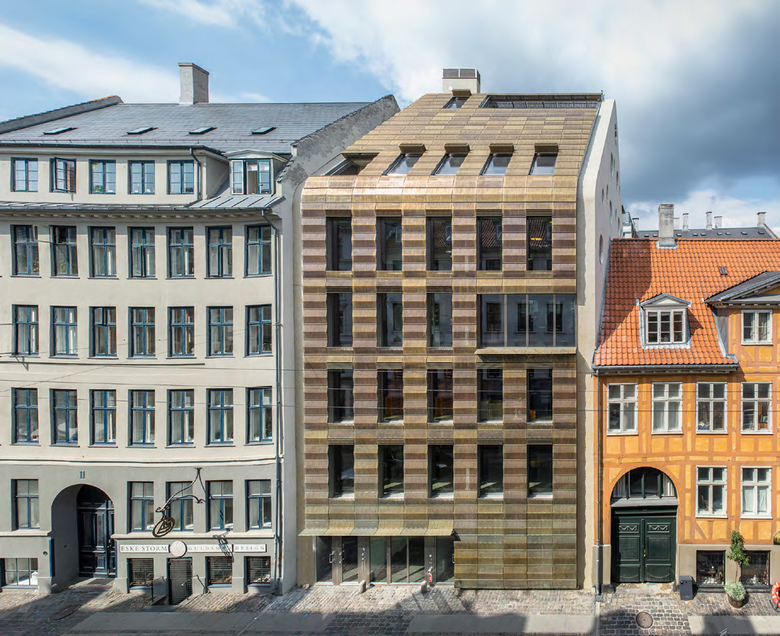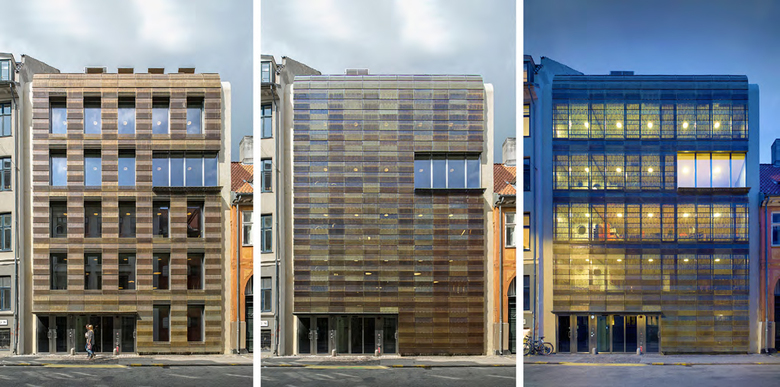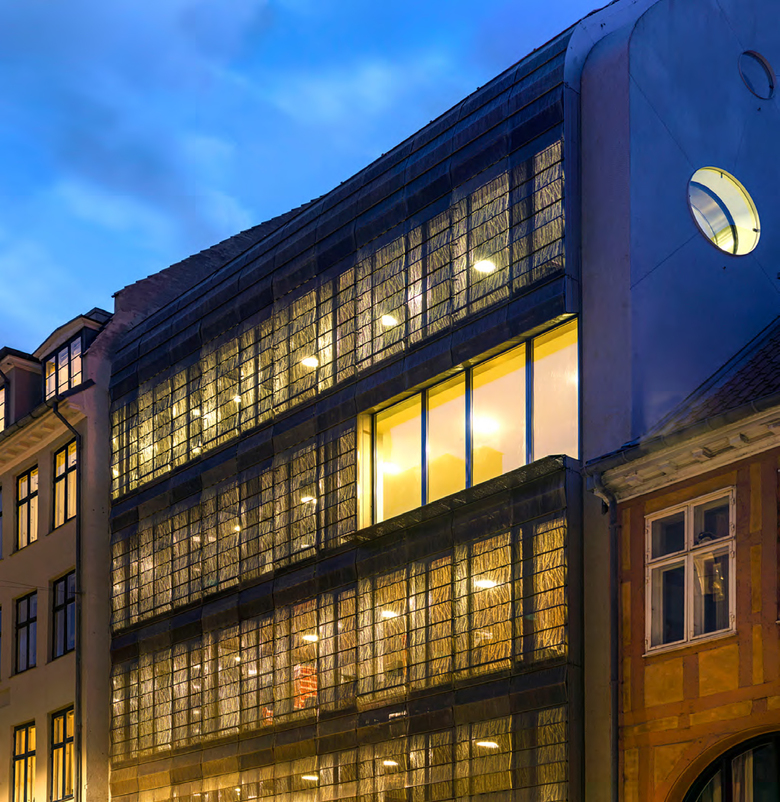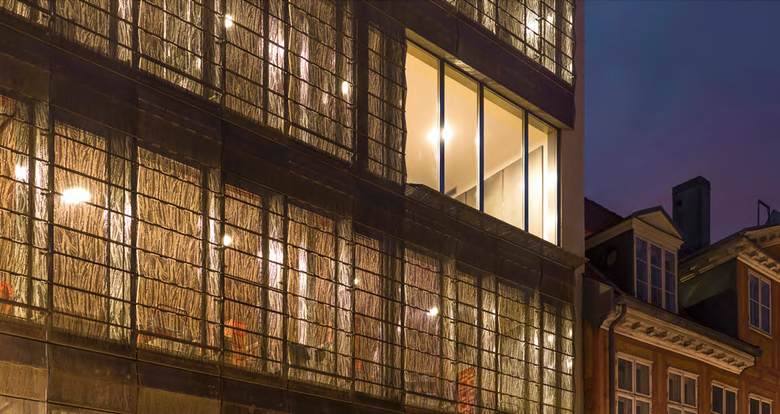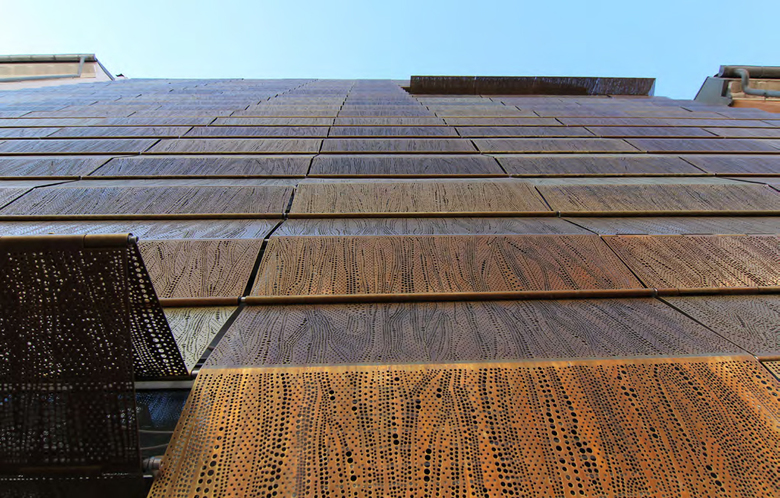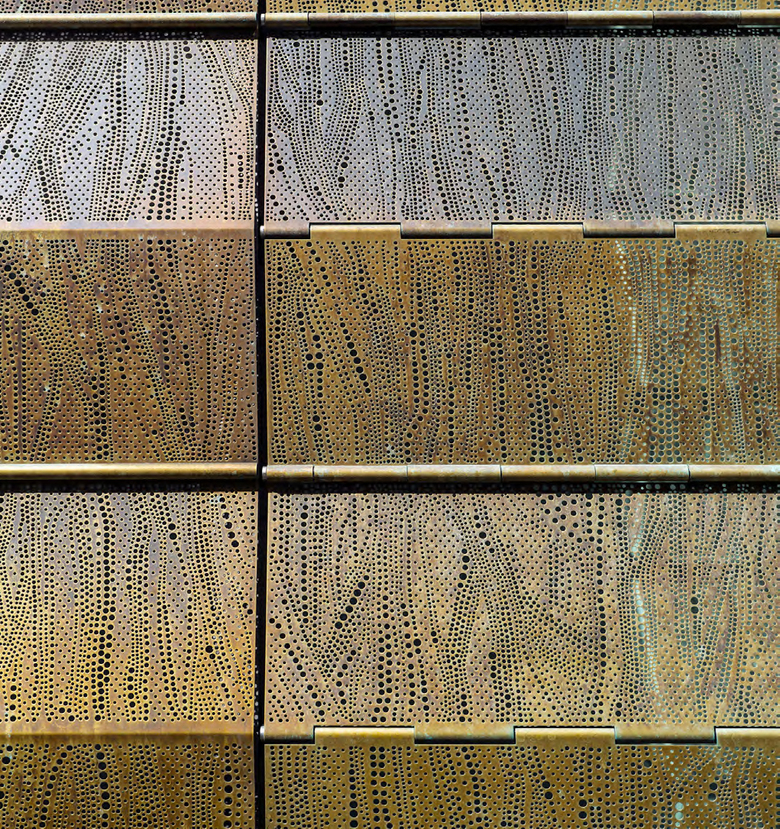Trollbeads House
BBP Architects have converted an office building dating from 1964 in the center of Copenhagen into the new headquarters for the Danish jewelry firm Trollbeads, who are known for their glass and gold beads.
It is a high security building, organized like the old Venetian merchant houses with goods loaded safely at the ground floor, stock and offices above, and, at the highest level, a residence for the owner with a roof terrace.
The challenge was to make a building that respects its type as a curtain wall building, while at the same time relating to the historic houses on either side. How do you combine a modern glass house with an 18th century townhouse?
The original curtain wall was removed, the existing concrete structure stripped and extended 2.5 m toward the street, and a new skin of glass and brass covers the facade, the roof and a small courtyard at the back.
The building consists of two party walls that have been raised and reshaped so as to follow the line of the neighboring mansard roof. As is typical for visible party walls in the city, the exposed wall has a different logic than the facade, with small, round windows placed in a random pattern.
Between the two rounded party walls, a skin of glass is stretched to cover the roof and facade. On the outside a brass curtain is hung, making a kind of inverted curtain wall.
The brass curtain has three functions:
1. Every morning half of the curtain opens, so the building emulates the historic houses next to it, with repeating windows in a massive wall.
2. After working hours the curtain closes automatically, and the building is transformed into a burglarproof vault.
3. After dark a dim light turns on inside, revealing a modern glass house behind a veil of translucent brass.
The building’s windows are fixed, but behind each of the “masonry” pillars there is a glass door that can be opened for ventilation.
The typical 1960s office building has been transformed into a golden jewelry box that becomes a glass chest at night.
